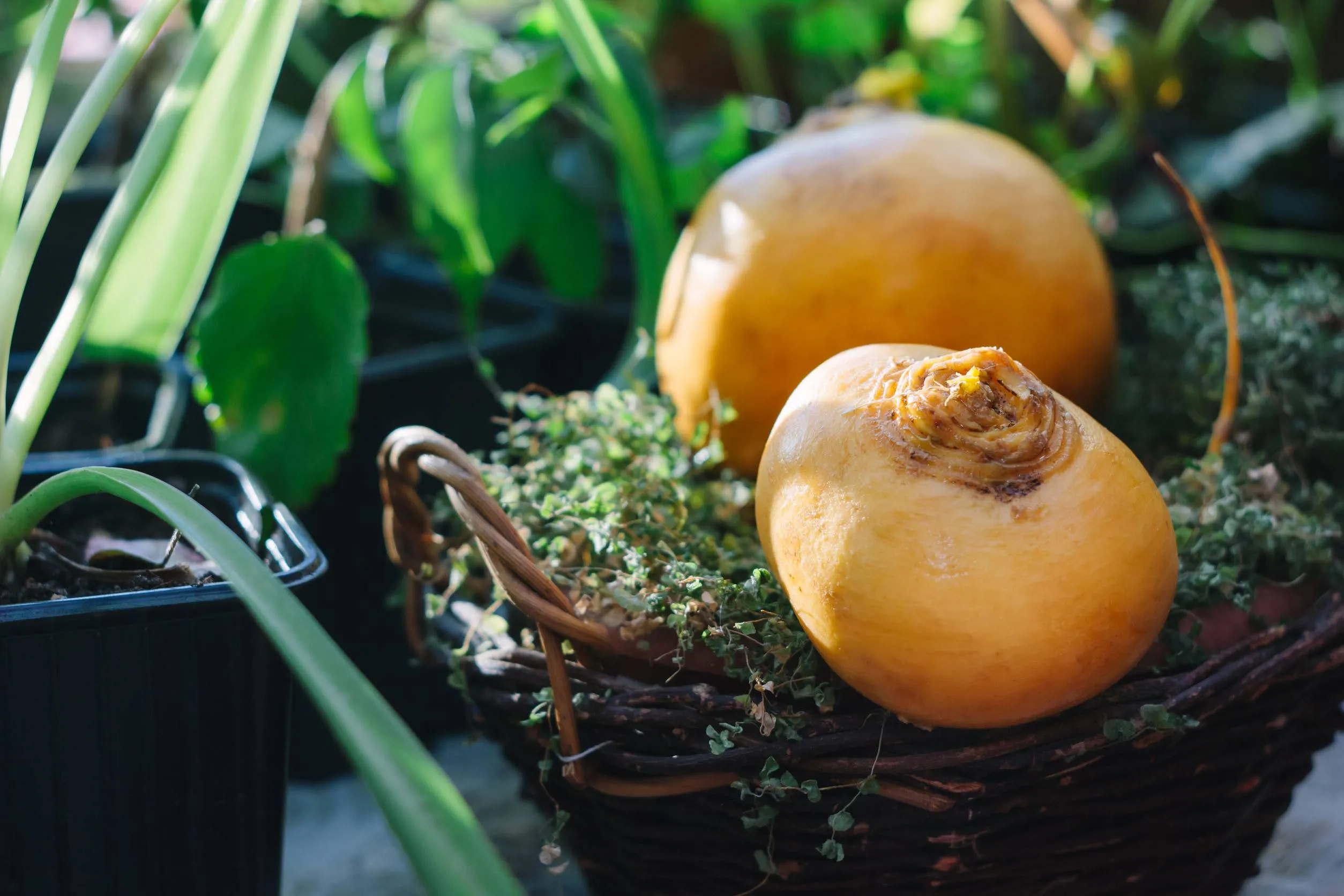nThe Humble Kohlrabi: A Nutritional Powerhouse You’re Missing Out On
The humble kohlrabi, often overlooked in Dutch kitchens, is finally getting the recognition it deserves. Recent research reported by The Telegraph highlights this affordable winter vegetable as a nutritional powerhouse, packed with health benefits that make it a must-have on your plate.
A Versatile and Nutrient-Rich Vegetable
Table of Contents
- A Versatile and Nutrient-Rich Vegetable
- Anti-Inflammatory and Immune-Boosting Properties
- A Sustainable Choice for Your Diet
- Tips for Enjoying Kohlrabi
- Key Nutritional Benefits of Kohlrabi
- Discovering the Nutritional Benefits of Kohlrabi
- Incorporating Kohlrabi into Your Diet
- Kohlrabi’s Role in a Lasting Lifestyle
- The Immune-Boosting and Anti-inflammatory Properties of Kohlrabi
- Final Thoughts and Takeaways
Food experts are singing the praises of this underrated tuber. “They can be enjoyed by the whole family and are relatively low in calories and carbohydrates,while also providing fiber and nutrients,” says Rebecca McManamon,dietitian and spokesperson for the British Dietetic Association. An 80-gram portion of kohlrabi delivers 1.5 grams of fiber, which not only aids digestion but also reduces the risk of cardiovascular disease.
Anti-Inflammatory and Immune-Boosting Properties
Kohlrabi is rich in glucosinolates, natural compounds known for their anti-inflammatory effects.These substances act as body protectors, combating inflammation and perhaps even keeping cancer cells in check. Additionally, kohlrabi offers a potent mix of vitamins essential for immune health.A single serving contains 15 mg of vitamin C, along with vitamins K and B6. This combination supports the production of white blood cells and antibodies, helping your body fight infections. Vitamin B6 also plays a key role in combating fatigue.
A Sustainable Choice for Your Diet
Kohlrabi isn’t just good for you—it’s good for the planet, too. As a locally grown winter vegetable,it boasts a small ecological footprint,making it a perfect fit for a sustainable diet. To preserve its nutritional value, experts recommend avoiding overcooking, as water-soluble vitamins can be lost in the process.
Tips for Enjoying Kohlrabi
If you find kohlrabi’s flavor a bit strong, try mixing it with carrots to create a smooth puree or incorporating it into soups and stews. With five portions available from a single turnip, it’s an affordable and versatile addition to your weekly menu.
Key Nutritional Benefits of Kohlrabi
| Nutrient | Amount per 80g Serving | Health Benefits |
|———————–|—————————-|—————————————–|
| Fiber | 1.5g | Aids digestion, reduces heart disease risk |
| Vitamin C | 15mg | Boosts immune system, fights infections |
| Glucosinolates | Present | Anti-inflammatory, potential cancer-fighting properties |
| Vitamin B6 | Present | Combats fatigue, supports energy levels |
don’t let this humble vegetable remain in the shadows. Add kohlrabi to your diet today and reap its impressive health benefits while supporting a sustainable lifestyle.
The Humble Kohlrabi: A Nutritional Powerhouse You’re Missing Out On
The humble kohlrabi, often overshadowed by more popular vegetables, is finally getting the spotlight it deserves. This versatile and nutrient-rich vegetable is packed with health benefits, making it a must-have addition to your diet. In this interview, Senior Editor of World Today News, sarah Thompson, sits down with Dr. Emily Carter, a nutritionist and expert on plant-based diets, to explore the many benefits of kohlrabi and how it can transform your health and sustainability efforts.
Discovering the Nutritional Benefits of Kohlrabi
Sarah Thompson: Dr. Carter, kohlrabi seems to be gaining attention recently. Can you tell us why this vegetable is considered a nutritional powerhouse?
dr. Emily Carter: Absolutely, Sarah. Kohlrabi is a fantastic source of essential nutrients. Just an 80-gram serving provides 1.5 grams of fiber, which is excellent for digestion and reducing the risk of heart disease.It’s also rich in vitamin C,with 15 mg per serving,which boosts the immune system and helps fight infections. Additionally, kohlrabi contains glucosinolates, compounds known for their anti-inflammatory and potential cancer-fighting properties.
Incorporating Kohlrabi into Your Diet
Sarah Thompson: Many people might not be familiar with kohlrabi or how to use it. What are some creative ways to add it to our meals?
Dr. Emily Carter: Kohlrabi is incredibly versatile. It can be enjoyed raw in salads, roasted, or even blended into smoothies. If you find its flavour a bit strong, try mixing it with carrots or incorporating it into soups and stews. One kohlrabi can yield up to five portions, making it an affordable and practical addition to your weekly menu.
Kohlrabi’s Role in a Lasting Lifestyle
Sarah Thompson: Beyond its health benefits, how does kohlrabi contribute to sustainability?
Dr. Emily Carter: Kohlrabi is a winter vegetable that’s frequently enough locally grown, which means it has a smaller carbon footprint compared to imported produce. By choosing kohlrabi, you’re not only supporting your health but also making an environmentally kind choice. To preserve its nutrients, I recommend steaming or lightly sautéing it rather than overcooking.
The Immune-Boosting and Anti-inflammatory Properties of Kohlrabi
Sarah Thompson: You mentioned glucosinolates earlier. Can you elaborate on how these compounds benefit our health?
Dr. Emily Carter: Certainly. Glucosinolates are natural compounds found in cruciferous vegetables like kohlrabi. They have been shown to reduce inflammation in the body, which can help prevent chronic diseases.There’s also promising research suggesting that these compounds may have cancer-fighting properties. Combined with its high vitamin C content, kohlrabi is a powerful ally for your immune system.
Final Thoughts and Takeaways
Sarah Thompson: Dr. Carter, what’s your final piece of advice for our readers about incorporating kohlrabi into their diets?
Dr. Emily Carter: Don’t let this humble vegetable remain in the shadows.Kohlrabi is affordable,versatile,and packed with health benefits. Whether you’re looking to boost your immune system, reduce inflammation, or support a sustainable lifestyle, kohlrabi is a fantastic choice. Start by trying it in a simple recipe, and you’ll quickly see why it’s becoming a favorite among nutrition experts.
Thank you, Dr.Carter, for sharing your insights. It’s clear that kohlrabi is a nutritional gem that deserves a place on our plates.let’s embrace this versatile vegetable and enjoy its many benefits while supporting a healthier, more sustainable future.
